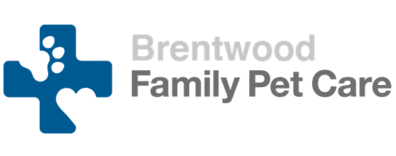Brentwood Family Pet Care
What are your fees?
Because there are variables when it comes to surgery (spay/neuter etc.) It’s best to give us a call and we can give you all the information on the phone.
Where are you located?
4421-A Balfour Rd. In the FoodMaxx shopping center at the intersection of Balfour Rd. and Walnut Blvd. We’re across from Subway and Aladino’s Pizza.
When are you open?
Monday through Friday, 8am to 6pm
How soon can I get an appointment?
We usually have appointments available the same day you call. If not, then the next day.
Do we have payment plans?
Yes, we accept CareCredit and Scratchpay (veterinary credit card).
How long to appointments take?
It can vary quite a bit depending on what you’re here for. On average, an hour would cover most appointments.
Do we see other small animals, pocket pets or reptiles?
We do not. We specialize in Cats and Dogs exclusively.
I use Over The Counter topical flea medication and my dog/cat still has fleas! Why?
We do not recommend OTC flea products. Many have only been tested by the EPA and they do not have a good safety or efficiency record. Prescription flea and tick products, both oral and topical, have been extensively tested by the FDA for safety and efficiency. These prescription products are very safe. If you are still having a flea issue after one month of a prescription medication, be sure ALL pets in the household are treated and also have your house/yard treated by a licensed exterminator.
My dog eats his/her poop! Why and how do I get him/her to stop?
This is a very common problem in dogs and is called “coprophagia.” This is usually a behavioral issue is linked to canine ancestors protecting their pack by cleaning up their den. Rarely there are medical conditions that can lead to coprophagia such as parasites, diabetes, or GI diseases. The best way to prevent coprophagia is to clean up immediately after your dog defecates. You can also use a taste-aversion product such as “Forbid” for 5 days.
What are anal glands and why would my dog need them expressed?
Anal glands are at the 4 and 8 o’clock position at each side of the anus and are sacs containing very smelly, oily fluid animals use for scent marking. Some dogs have thicker fluid than normal, small ducts, or anal gland inflammation, making it more difficult for them to empty. Glands that don’t get emptied can cause pain and eventually an anal gland abscess which may require surgery. When the glands are full your pet will let you know by scooting or licking. There could also be a foul, fishy smell. In some dogs, they require frequent anal gland expression and a high fiber diet to prevent the glands from developing abscesses.
Which vaccines do you recommend?
The core vaccines we recommend for dogs are rabies, kennel cough (bordetella), distemper/parvovirus, and leptospirosis. Rabies is administered at 16 weeks, a year after that, and then every 3 years. Bordetella is administered twice as a puppy, and then every 6 months thereafter. Distemper/parvovirus and leptospirosis are given as a combination vaccine at our clinic and is administered multiple times as a puppy and then once a year. Other vaccines that are administered to high-risk pets are the Lyme disease vaccine and canine influenza vaccine. The influenza vaccine is required at most boarding facilities, including Disneyland. The Lyme vaccine should be administered to dogs in high tick areas, although year-long flea and tick prevention is still strongly recommended.
My pet is indoors only, why does it need a rabies vaccine?
The rabies vaccine is mandated for pets under California law. Previous reports have occurred when bats or other wildlife entered the house and infected the pet. Rabies is 100% fatal in animals and humans.
How do I choose the right pet food?
Choosing pet food can be difficult because of differing opinions, understanding labels, and often misleading marketing. It is best to pick a pet food that is tailored to your pet’s specific lifestyle (maintenance versus growth) and has gone through AAFCO food trials.
If your pet is experiencing diarrhea, vomiting, or weight gain/loss on a specific food, it is best to ask your veterinarian if this is the best food for your pet. In addition, grain-free diets are not as important as one may think. The large majority of dogs with food allergies are allergic to proteins, not grain. The “grain-free” claim is mainly used for marketing purposes by food companies to entice pet owners to buy their product. In fact, when a food is grain-free then that means there is more starch in the diet, which can lead to obesity.
How often should I bathe my dog?
We should bathe our dogs at least once a month depending on the breed and activities. There are certain skin conditions that may require more or less frequent bathing, so it is best to ask your veterinarian. Certain dogs also require regular grooming to keep them from getting matted hair.
How often should I trim my pet’s nails?
Neglecting your dog’s or cat’s toenails can lead to painful ingrown claws or a nail that is ripped off after getting caught on fabric or a bush. Long toenails can also make it difficult for them to walk. It is important to evaluate your pets’ nails periodically to look for problems and to see if they need trimming. The frequency of nail trims depends on many factors such as age and how much they walk and on what surfaces.
Some dogs who are walked on sidewalks and pavement grind their nails down and rarely need trimming, while a couch potato dog may need regular routine trimming. In general, check your dog’s nails at least every one to two weeks. The nails should be short enough where they don’t touch the ground when he is standing. A cat’s nails should also be trimmed every two weeks or so depending on how fast they grow.
How often should I bring my pet to the vet?
Pets should have regular check-ups at least once a year. In Senior animals, we recommend every 6-month check-ups. Every year in a dogs’ life is equivalent to 7 years passing in humans. Many things can change in a one-year period!
When my pet is sick, how long should I wait before bringing him/her in?
We strongly recommend bringing your pet in at the first signs of illness. If a client is unsure, we advise calling to have one of our veterinarians assess the urgency of the situation. Although some diseases can be mild and self-limiting, many are not and can be painful and dangerous if left untreated. We recommend reaching out to SAGE Concord or VCA East Bay Emergency to assist you through your emergency.
SAGE Concord - (925) 627-7243 -1410 Monument Blvd, Concord, CA 94520
VCA East Bay Emergency - (925) 754-5001 - 1312 Sunset Dr, Antioch, CA 94509
How long does my pet have to wear the cone for after surgery?
In most cases, the cone is required for 10-14 days. The cone prevents the pet from licking the incision leading to an incisional infection, or worse, removing the stitches and opening up the wound.
Why does my pet need annual blood-work?
After a baseline level, yearly blood panels are recommended for early detection of internal problems with your pet. The blood panels include a complete blood count (CBC) and blood chemistry. The blood chemistry test is an organ function screen that measures electrolyte levels and other molecules that monitor the liver and kidney for dysfunction. Additional testing is available as well, such as a thyroid screen and urinalysis. The urinalysis measure the concentrating abilities of your pets’ kidneys, checks for blood, proteins, and pH of the urine, and gives a microscopic view of the urine to identify the presence of an infection.

